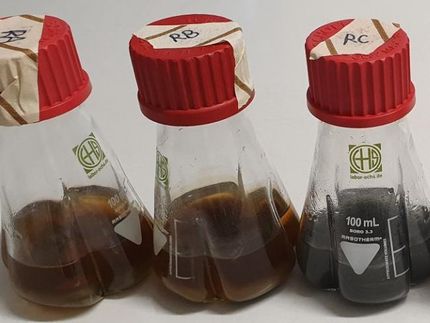Degussa BioRenewables Days
Renewable raw materials as alternatives to petrochemicals
The chemical industry already meets up to 8 percent of its demand for starting materials with renewable raw materials. Strategies for gaining a further increase in this share, and the technological tools that need to be developed for this purpose, were the main topics of the BioRenewables Days of Degussa AG. 150 experts from politics, industry and universities from Germany and abroad met for a day and a half to discuss perspectives on biorenewables in chemical production. "The conversion from fossil starting materials to renewable raw materials is one of the biggest challenges we face over the next 50 years," said Dr. Alfred Oberholz, the Degussa Management Board Member responsible for research and development. "The leaders will be the companies and economies that develop alternatives to the fossil-based economy early on, and promote technologies for using renewable raw materials."
The BioRenewables Days focus on the technical, economic and environmental aspects of the industrial use of biorenewables, as well as natural oils and fats as starting materials for products such as cosmetics. A third area of concern are new developments in white biotechnology - ranging from enzymes and microorganisms that convert raw materials such as sugar or starches into valuable chemical building blocks, all the way to "bio-refineries." These use the entire biomass of renewable raw materials, and convert them fully into chemicals, active substances and fuels and gasoline.
The BioRenewables Days build on the work of the new Bio Science-to- Business Center, which Degussa started on January 1, 2006 in Marl. The Group is investing 50 million euros over the next five years in developing new biotechnological products and processes based mainly on renewable raw materials together with university and industry partners. The government of North Rhine-Westphalia is also supporting Degussa's activities in white biotechnology, in the form of a public-private partnership.
Most read news
Topics
Organizations
Other news from the department business & finance

Get the chemical industry in your inbox
By submitting this form you agree that LUMITOS AG will send you the newsletter(s) selected above by email. Your data will not be passed on to third parties. Your data will be stored and processed in accordance with our data protection regulations. LUMITOS may contact you by email for the purpose of advertising or market and opinion surveys. You can revoke your consent at any time without giving reasons to LUMITOS AG, Ernst-Augustin-Str. 2, 12489 Berlin, Germany or by e-mail at revoke@lumitos.com with effect for the future. In addition, each email contains a link to unsubscribe from the corresponding newsletter.
























































